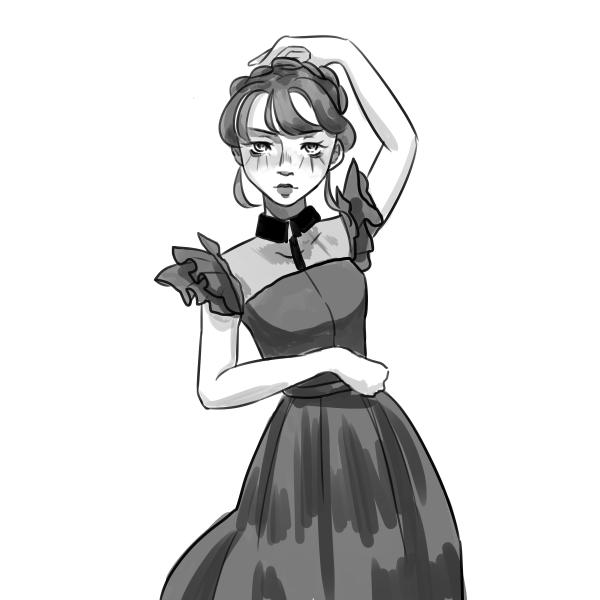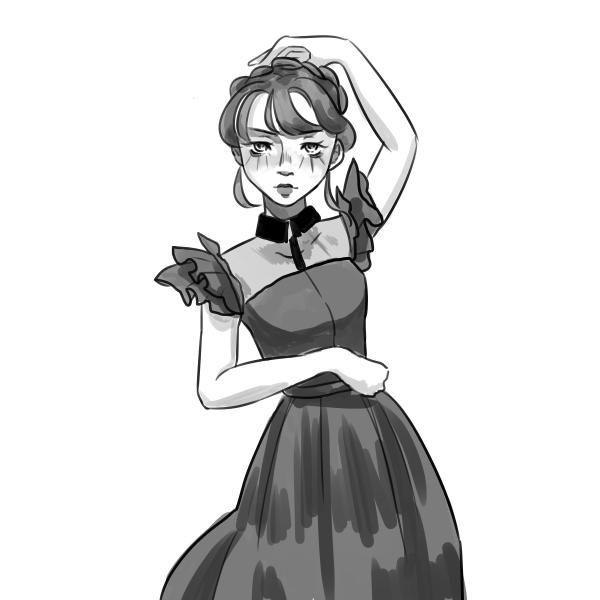Unpacking Wednesday
If you haven’t at least heard of the Netflix show, Wednesday, you’ve probably been living under a rock. This eight-episode show is centred around Wednesday Addams, the introverted and gloomy daughter of the Addams family. Wednesday is sent to Nevermore, a boarding school her parents attended. There, she tries to solve a string of killings (scary), while discovering her psychic powers and embarking on the (arguably more scary) quest of friendship and romance.

For Gen Z, Wednesday’s appeal is obvious. It combines YA teen media (think School for Good and Evil) and Tiktok’s current obsession: dark academia, with an unconventional protagonist. Arguably, the most dynamic part of the series is Wednesday herself. By placing Wednesday Addams, a homicidal and reserved character, as the hero of the story, Wednesday is challenging the archetypal hero, also known as the ‘so morally good it’s annoying’ and often white and male character. Thus, Wednesday Addams is an excellent example of an anti-hero.
However, Wednesday Addams’ characterization as an anti-hero only works because her moral code falls within the realm of ‘good’. With most anti-heroes, actions that are perceived as socially unacceptable (such as violence) are justified because the character’s moral code aligns with the principles of right and wrong. Wednesday setting piranhas loose on bullies may break societal code, but the audience understands Wednesday does this because the bullies have hurt her family, and thus, we do not view Wednesday as a ‘bad’ person.
The issue is that Wednesday fails to uphold Wednesday’s strong sense of justice and moral code. While the first few episodes portray Wednesday as someone who views the world in shades of black and white, (justifying any societally unacceptable behaviours) Wednesday’s actions later in the show contradict this. Because of this, Wednesday strays too far across the line between ‘good’ and ‘bad’ and becomes a flawed character. The most obvious example of this is the framing of Xavier as the monster that’s been terrorizing the town. Wednesday decides that Xavier’s paintings and prophetic dreams of the monster, Xavier’s coincidental arrivals at the scene of the crime, and his psychiatrist’s ability to hypnotize are 100 percent solid proof that Xavier is the monster. Wednesday then decides to frame Xavier by planting evidence.
A side note: one thing about Wednesday’s ‘evidence’ is that it also applies to her. She has prophetic visions of the monster, Xavier and Wednesday share the same psychiatrist, and Wednesday is always at the scene of the crime. Perhaps a better end to the show would be for Wednesday to have been the monster.
That aside, the framing of Xavier represents a deviation from Wednesday’s character. At the beginning of the story, Wednesday follows very stringent principles of right and wrong. When she framed Xavier, her character developed into someone who strives to achieve justice so much, their own morals have been warped. By compromising her ideals, Wednesday has evolved into a flawed anti-hero.
Having a flawed hero is not the problem here. In fact, many books and shows have flawed heroes; take Rin from The Poppy War or Harry Potter (I’m sorry for bringing it up) from Harry Potter and The Order of the Phoenix. These flawed heroes add depth and nuance to these stories, but only because the authors acknowledge them as flawed.
This is where the creators of the show fail. Instead of having Wednesday recognize that she’s harmed people and having her learn from her mistakes, the authors consistently present her as near-perfect. While there are moments when characters do get upset at her, for the most part, she does not always take accountability. For example, after being physically restrained, framed by your classmate, and locked up in a jail cell, something that would be severely traumatizing, Xavier apologizes to Wednesday. This writing decision was so incredibly (*sigh*) wrong, I actually had to step away from the show for a second. A better way to end the show would be for Wednesday to apologize to Xavier, showing character growth and accountability for her actions. Instead, the writers refused to believe that Wednesday could be flawed in any way and denied the audience the character development we so wanted.
Anyways, to the creators of Wednesday: you can have flawed heroes!
